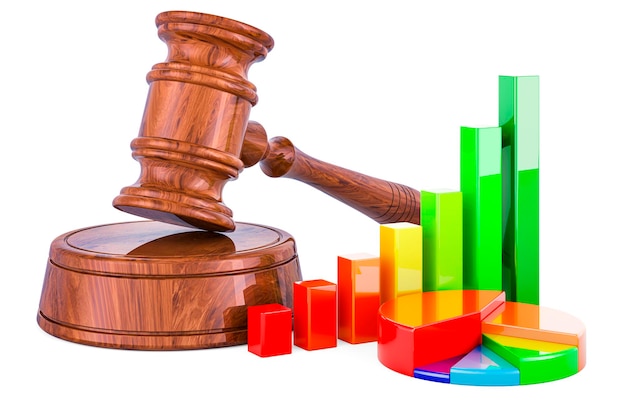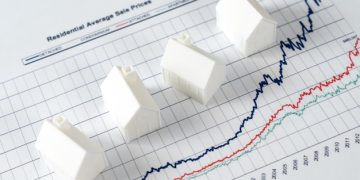Interest Rate Hike: Expect Mortgage Rates to Jump 0.75%

Anúncios
A recent announcement indicates a significant 0.75% hike in interest rates, which is poised to substantially impact mortgage rates across the US, potentially affecting homebuyers and the housing market.
The financial landscape is bracing for a shift as a breaking: interest rate hike expected to impact mortgage rates by 0.75% has just been announced, signaling potential changes for prospective homeowners and the broader real estate market in the United States.
Anúncios
Understanding the Interest Rate Hike
An interest rate hike is a decision made by the Federal Reserve (also known as the Fed) to increase the federal funds rate. But how does this macroeconomic maneuver impact your personal mortgage rates?
This rate is the target rate that the Federal Reserve wants banks to charge one another for the overnight lending of reserves. When this rate increases, it becomes more expensive for banks to borrow money. This increased cost is then passed down to consumers and businesses in the form of higher interest rates on various types of loans, including mortgages.
Anúncios

The Federal Reserve’s Role
The Federal Reserve plays a critical role in managing the U.S. economy. It uses interest rate adjustments as a tool to control inflation and promote economic stability. When inflation rises, the Fed may increase interest rates to cool down the economy by making borrowing more expensive. Conversely, when the economy needs a boost, the Fed may lower interest rates to encourage borrowing and spending.
- Inflation Control: Interest rate hikes are primarily used to combat inflation by reducing the money supply.
- Economic Stability: The Fed adjusts rates to keep the economy on a steady course, avoiding drastic booms and busts.
- Monetary Policy: These adjustments are part of a broader monetary policy strategy, aimed at achieving full employment and price stability.
In essence, an interest rate hike is a deliberate strategy employed by the Federal Reserve to manage economic conditions, balancing the need for growth with the imperative of controlling inflation.
Immediate Impact on Mortgage Rates
The immediate effect of an interest rate hike is usually seen in the increase of mortgage rates. These rates reflect the cost that lenders incur when borrowing money, and these costs are directly passed on to homebuyers.
A 0.75% increase can significantly affect the affordability of homes, potentially making it more difficult for first-time buyers to enter the market, as well as impacting current homeowners looking to refinance.
How Different Mortgages Are Affected
The impact of the interest rate hike isn’t uniform across all types of mortgages. Here’s a brief look at some of the different ways mortgages can be impacted.
Fixed-rate mortgages, adjustable-rate mortgages, and home equity lines of credit (HELOCs) all will have different impacts.
- Fixed-Rate Mortgages: These are generally not affected immediately, but new fixed-rate mortgages will be offered at higher rates.
- Adjustable-Rate Mortgages (ARMs): These will see immediate increases as their rates are directly tied to benchmark rates.
- Home Equity Lines of Credit (HELOCs): Like ARMs, HELOCs are likely to see immediate rate increases.
So, those with fixed-rate mortgages may not see the impact right away, while others may experience rate increases quickly. It is important to understand the type of mortgage that you have to plan and prepare.
The Broader Economic Implications
Beyond the immediate effects on mortgage rates, an interest rate hike has broader economic implications that can affect various sectors. Understanding these effects can help stakeholders prepare for potential economic shifts.
These hikes can affect everything from consumer spending to business investments, and understanding these effects is key to navigating the financial landscape.

Impact on Consumer Spending
When interest rates rise, borrowing becomes more expensive, discouraging consumers from taking out loans for big-ticket items such as cars and appliances. This decrease in consumer spending can slow down economic growth.
Business Investments and Growth
Higher interest rates can also deter businesses from making new investments or expanding, as the cost of borrowing increases. This can lead to slower business growth and potentially affect job creation.
The Housing Market’s Ripple Effect
The housing market is particularly sensitive to changes in interest rates. As mortgage rates rise, demand for homes may decrease, leading to a cooling off of the market. This can affect home prices, construction, and related industries.
The broader implications of an interest rate hike extend far beyond the housing market. Consumers and businesses alike are affected, and it is important to be prepared.
Strategies for Homebuyers and Investors
In light of the expected interest rate hike, both homebuyers and investors need to adopt proactive strategies to navigate the changing market conditions. Making informed decisions can help mitigate potential risks and capitalize on emerging opportunities.
Adjusting financial strategies to the current market conditions may be the key to a successful investment.
For Potential Homebuyers
Potential homebuyers should reassess their financial readiness and explore different mortgage options. This includes comparing rates from multiple lenders, considering smaller down payments, and looking into government-backed loan programs.
For Current Homeowners
Current homeowners may want to consider refinancing their mortgages if rates are still favorable. They should also evaluate their budget and financial goals to ensure they can comfortably afford their monthly payments.
For Real Estate Investors
Real estate investors should focus on diversifying their portfolios and exploring alternative investment strategies. They should also stay informed about market trends and adapt their approach accordingly.
In this fluctuating market, it’s important to stay calm and collected. By taking advice from the above, one can ensure that they will be in a good place when it’s all said and done. Keep calm, and buy on!
Expert Opinions and Forecasts
To gain a comprehensive understanding of the expected interest rate hike and its impact, it is essential to consider expert opinions and forecasts from economists, financial analysts, and real estate professionals.
Predictions from experts can offer valuable guidance, but they should be considered alongside personal financial goals and risk tolerance.
Insights from Economists
Leading economists predict that the interest rate hike will have a moderating effect on the housing market, slowing down price appreciation and increasing inventory. Some experts also caution that the hike could lead to a mild recession if not carefully managed.
Advice from Financial Analysts
Financial analysts recommend that consumers and investors stay diversified and avoid making impulsive decisions. They also suggest consulting with financial advisors to tailor strategies to individual circumstances.
Real Estate Market Predictions
Real estate experts anticipate that the interest rate hike will lead to a more balanced market, with fewer bidding wars and more opportunities for buyers. They also emphasize the importance of local market conditions, as some areas may be more affected than others.
Experts provide invaluable help with this topic. If you are ever stuck, be sure to consult an expert for more help!
Long-Term Implications for the Housing Market
The interest rate hike is not just a short-term event; it has long-term implications for the housing market and the broader economy. Understanding these long-term effects is crucial for making informed financial decisions and planning for the future.
From changes in homeownership rates to shifts in investment strategies, the interest rate hike will shape the trajectory of the housing market for years to come.
Potential Shifts in Homeownership
Over the long term, the interest rate hike could lead to shifts in homeownership rates, particularly among first-time buyers. As affordability decreases, some individuals may delay home purchases or opt for renting instead.
Changes in Investment Strategies
Investors may need to reassess their strategies and consider alternative investments in the face of rising interest rates. This could include exploring commercial real estate, REITs, or other asset classes.
Regulatory and Policy Adjustments
In response to the interest rate hike, policymakers may consider regulatory adjustments or new policies to support the housing market and promote affordability. These measures could include tax incentives for homebuyers or programs to assist low-income families.
As a result of the information that you have learned, you are one step closer to understanding the long term affect that you may need for your home.
| Key Point | Brief Description |
|---|---|
| 📈 Rate Hike | A 0.75% increase can significantly affect home affordability. |
| 🏠 Mortgage Impact | ARMs and HELOCs will see immediate rate increases. |
| 💸 Spending | Higher rates can deter consumer spending and business investments. |
| 🔑 Long-Term Shifts | Potential shifts in homeownership and investment strategies. |
FAQ
▼
For those with fixed-rate mortgages, the rate hike won’t immediately change their monthly payments. However, those with adjustable-rate mortgages (ARMs) or home equity lines of credit (HELOCs) will likely see their rates increase.
▼
Homebuyers should compare rates from multiple lenders and explore government-backed loan programs. They may also consider making larger down payments to reduce the loan amount and overall interest paid.
▼
The housing market may cool down as mortgage rates rise, leading to fewer bidding wars and more opportunities for buyers. Home price appreciation might slow, and inventory of homes for sale could increase.
▼
An interest rate hike can affect consumer spending, business investments, and job creation. Borrowing becomes more expensive, potentially slowing down economic growth. Businesses may delay expansions due to increased costs.
▼
In the long term, the hike could shift homeownership rates, especially among first-time buyers. As homes become less affordable, some may delay home purchases or rent instead. Investors might need to explore alternative investment strategies.
Conclusion
In summary, the expected interest rate hike of 0.75% is poised to have a significant impact on mortgage rates, the housing market, and the broader economy. Homebuyers and investors need to stay informed and make strategic decisions to navigate these changes successfully, ensuring they are well-prepared for the fluctuating market conditions.





